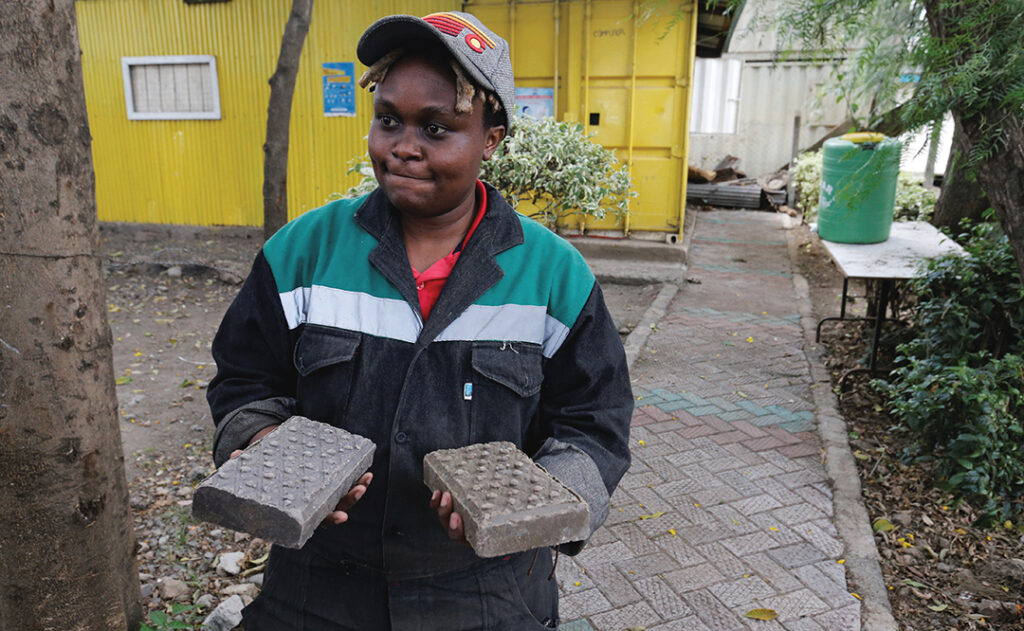REUTERS
Nzambi Matee hurls a brick against a footpath constructed from bricks made of recycled plastic that her factory produces in the Kenyan capital.
It makes a loud bang, but it does not crack.
“Our product is almost five to seven times stronger than concrete,” said Matee, the founder of Nairobi-based Gjenge Makers, which transforms plastic waste into durable building materials.
“There is that waste they cannot process anymore; they cannot recycle,” she said. “That is what we get.”
Matee gets the waste from packaging factories for free, although she pays for the plastic she gets from other recyclers. Her factory produces 1,500 bricks each day, made from a mix of different kinds of plastic.
These are high-density polyethylene, used in milk and shampoo bottles; low-density polyethylene, often used for cereal or sandwich bags; and polypropylene, used for ropes, flip-top lids and buckets.
The plastic waste is mixed with sand, heated and then compressed into bricks, which are sold at varying prices, depending on thickness and color. The common gray bricks cost 850 Kenyan shillings ($7.70) per square meter.
Matee, a materials engineer who designed her own machines, said her factory has recycled 20 tons of waste plastic since its founding in 2017. She plans to add another, bigger production line that could triple capacity, and hopes to break even by the end of 2021.
Matee set up her factory after she ran out of patience waiting for the government to solve the problem of plastic pollution.
“I was tired of being on the sidelines,” she said.

